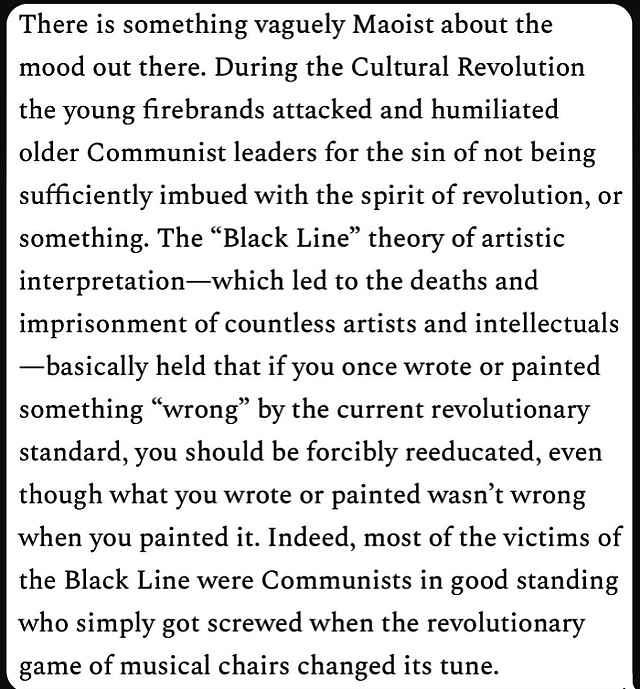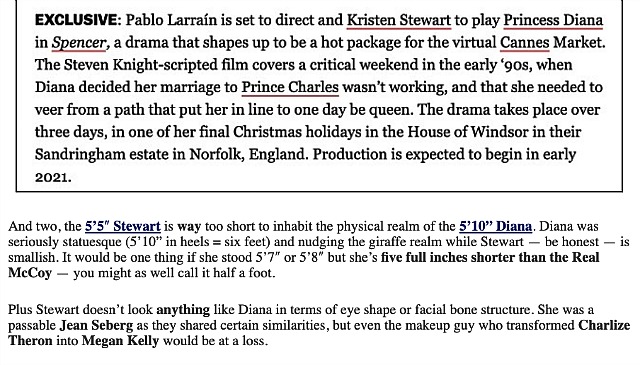The AMPAS board of governors has voted to give agents the right to vote for Oscars. I for one believe that managers should also be allowed to vote. Agents and managers are as heavily invested in the industry as anyone else. Agents in particular are as sharp and eagle-eyed as members of the other branches, and are arguably more attuned to the shifting directions of the cultural winds. Come to think of it, shouldn’t this privilege also be afforded to elite industry journos? The Gold Derby gang, I mean. Talk about investment in the process and keeping a sharp eye…c’mon.
Adrenaline Thrills
I’ve whitewater-rafted twice, once gratis and the second time for a not-too-painful fee. The freebie (thanks to the largesse of Universal Pictures) happened in Whitefish, Montana during a 1994 press junket for Curtis Hanson‘s The River Wild. The second occasion was a four-hour trek down the Schwarze Lütschine during a 2012 Switzerland vacation with Jett and Dylan. $150 each x 3 = $450 plus a tip for the raft commander.
I was thinking this morning about repeating the experience, perhaps on the Colorado River through the Grand Canyon later this summer. Easier imagined than done. For two people counting to-and-fro expenses plus air fare, hotel, meals and gas you’re looking at roughly between two and three grand. Three- to four-day camping treks are naturally a lot more. Almost every kind of adventure costs an arm and a leg these days. Even a three-day hiking visit to Yosemite and surrounded areas can do a fair amount of damage, especially if your wife or girlfriend is a luxury queen who doesn’t like roughing it at second-tier motels or campsites.
The bottom line is that Deliverance-type adventures cost more than you might think, and certainly enough to give pause to working stiffs trying to live within a reasonable budget. What did Jon Voight and Burt Reynolds pay those hillbillies to drive their cats to Aintree? $40 plus gas?
Fluid Defining
I thought “partner” was more or less a gay couple term, and that straight people refer to their significant others as a boyfriend/husband or girlfriend/wife. Right? Or has the use of partner by straights become a solidarity-with-LGBTQ thing?

What Is Life?
Life is a fountain, and each of us is a drop of water. The fountain shoots us out and we rise (sometimes ecstatically) into the air, and then we fall back into the pool and splash around and then get sucked down into the pump mechanism. And then we shoot out again. An endless cycle.
Okay, some water drop arcs aren’t as glorious as others, but it’s nonetheless a divine, infinite process.
When the kids were young and asking these kinds of questions I would say that when we die we become a baby again, except we never remember our previous life (or lives).
I for one find the fact that Donald Trump will one day be dead very comforting.
Blithe Disregard
For what it’s worth there were thousands frolicking at the Malibu beaches yesterday. Which is permissible, I suppose, if you’re careful and have your mask at the ready. But as we drove back to town I noticed a whole lot of people sitting on various restaurant patios without masks. Do we not have a spiking-infection problem in this state? This “whatever” attitude is why the U.S. is still struggling while European and Asian infection levels have plummeted.
Breaking 1 pm Pacific: “Citing the rapid pace of coronavirus spread in some parts of the state, Gov. Gavin Newsom on Sunday ordered seven counties including Los Angeles immediately to close any bars and nightspots that are open and recommended eight other counties take action on their own to close those businesses.”
Maoist Scolds of Great Cultural Revolution
From “The Maoist Nature of the New War on Wrongthink,” posted by The Dispatch‘s Jonah Goldberg on 6.26.20:



Son of All-Time Downers
Posted on 2.16.05: There are at least three ways to have a depressing time at the movies, and one is worth the grief.
One, you can sit through something shoddy, inept and sub-standard, and do everything you can to flush it out of your system when it’s over. Two, you can sit through a smooth, studio-funded, well-made enterprise that everyone’s loving and is making money hand over fist, but which you happen to despise with every fibre of your being. Or three, you can watch a heartfelt, quality-level downer and come out saying “huh, that was sad but edifying.”
Movies that relay or reflect basic truths will never be depressing, but those that tell lies of omission by way of fanciful bullshit always poison the air.
Sadness in good movies is not depressing — it’s just a way of re-experiencing honest hurt. Ordinary People is sad, but if you think it’s depressing as in “lemme outta here” there’s probably something wrong with you.
I’ll give you depressing: living a rich full life (children, compassion, wealth, adventure) and then dying at a ripe old age, and then coming back (i.e., reincarnated) as a chicken at a Colonel Sanders chicken ranch.
My beef is with movies that impart a distinct feeling of insanity by way of delirium or delusion, or a bizarre obsession. Frank Darabont‘s The Green Mile (turn on the current! smell that burning flesh! cuddle that cute mouse!) and The Majestic (rancid small-town “folksiness”) are two such films. Ditto Steven Spielberg‘s Always .
Martin Scorsese‘s Kundun isn’t exactly a downer. It’s worse than that — it’s paralyzing. And yet Scorsese made one of the greatest spiritual-high movies ever with The Last Temptation of Christ.
On the other hand, Marty sent thousands upon thousands of moviegoers into states of numbing depression when Sharon Stone gave Joe Pesci a blowjob in Casino.
Leaving Las Vegas, Mike Figgis‘ film about a lush who’s decides to drink himself to death and doesn’t quit until he succeeds, has never been and never will be depressing. (If you’re engaged to someone who thinks it is, tell him or her it’s over — you’ll be divorcing them eventually so you might as well get it over with.)
And yet the watching of John Huston‘s Under the Volcano, about a somewhat older guy (Albert Finney) doing more or less the same thing, is akin to accidentally overdosing on generic cold medication and having to tough it out until the effects wear off.
In her review of Peter Brooks‘ King Lear (’71), a profoundly dreary black-and-white thing with Paul Scofield in the title role, Pauline Kael wrote, “I didn’t dislike this film — I hated it.” I was so intrigued by this review that I eventually saw Brooks’ film, and I knew Kael wasn’t talking about what Brooks had done as much as the way his film made her feel deep down.
The Godfather, Part II is a fairly gloomy film but it doesn’t lie. It basically says that the ties that used to bind families and community together in the old days (the `40s and `50s) have been unraveling for some time. As Al Pacino‘s Michael Corleone says to his mother in the second act, “Things are changing.”
The Matrix Revolutions is a profoundly depressing film, especially when all those hundreds of thousands of sentinels start swarming into Zion like wasps. Absolutely relentless and thundering empty-coke-bottle bullshit.
Sitting through Ron Howard‘s Backdraft is like injecting an experimental psychotic drug concocted by Dr. Noah Praetorious (the frizzy-haired scientist in The Bride of Frankenstein) straight into your veins.
Again — Fast Work
Charlie Savage, Eric Schmitt and Michael Schwirtz‘s N.Y. Times story about Russia secretly offering payment to Afghan militants for killing U.S. troops appeared late Friday (6.26). The Lincoln Project had this ad up and running sometime yesterday afternoon, or certainly by early evening.
Killer Times subhead: “The Trump administration has been deliberating for months about what to do about a stunning intelligence assessment.”
Killer YouTube comment: “Agent Orange wants a hotel and casino in Moscow. American lives mean NOTHING to him as evidenced by his pandemic response and his war against the Affordable Care Act. Now we see our soldiers are disposable cannon fodder. Putin is playing him like the incompetent dunce that he is. The world’s dictators are having a field day.” — Ellen Bryant, early this morning.
Dogs of Tentpole Hell
Steven Spielberg‘s Jaws opened almost exactly 45 years ago — 6.20.75. The trouble-plagued Universal release opened in 474 theatres that day, and then expanded to 675 theatres on 7.25.75 — the biggest mass release of a film ever seen at the time. It earned a staggering $7 million the first weekend, and stayed at the top for the next five weeks, ultimately becoming the first pic to top $100 million domestic.
I’ve acknowledged that for what it is, Jaws holds up fairly well. But it’s difficult to think of it these days as just a film. For years it’s been regarded (and not just by people like myself) as almost a sentinel of tragedy, as extreme as that may sound. It ushered in the era of the mass-market, four-quadrant tentpole movie, and in so doing almost single-handedly (i.e., along with the success of Star Wars two years later) turned the film industry away from the idea of smallish or mid-sized movies with flavor and personality being a legitimate thing to invest in.
Jaws and Star Wars, in short, brought high-concept greed into the mix, and from this the interest of corporations in the potential for even greater profits if movies could be sufficiently simplified and tailored to a younger (or more simple-minded) audience. This in turn set in motion forces that wound up dumbing down movies and injecting a kind of virus into the Hollywood system that basically poisoned the whole game, leading to the ascension of tentpole auteurs and dumber plots and faster and faster cutting and hundreds of orange fireballs in action sequences.
This cause-and-effect has been recounted and lamented by many thoughtful chroniclers, and doesn’t need to repeated once again. But Jaws did do it — it let slip the dogs of tentpole hell, and movies have never been the same since.
Oh My God…
From the director of The Help, Get On Up and Girl On The Train. Sorry but I’m sensing a downward trajectory here. Good cast though — Jessica Chastain, John Malkovich, Common, Geena Davis, Colin Farrell, Ioan Gruffudd, Joan Chen. Nope, no way, not a chance.






